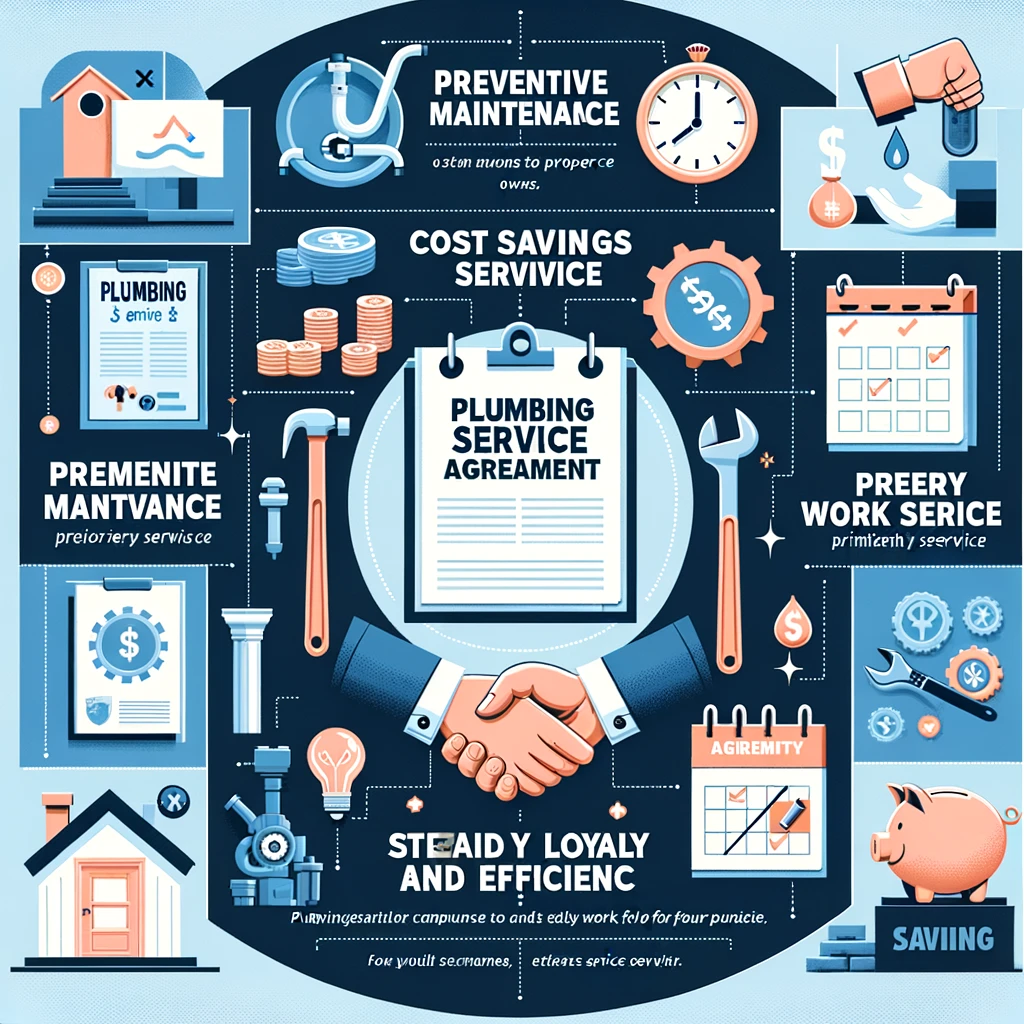The Ultimate Guide to Plumbing Service Agreements
In the realm of property maintenance and management, plumbing systems play a pivotal role in ensuring the smooth operation of both residential and commercial properties. A plumbing service agreement stands as a crucial document that outlines the terms and conditions under which plumbing services will be provided. This comprehensive guide aims to shed light on the importance of plumbing service agreements, detailing their benefits, key components, and best practices for drafting an effective agreement. We'll also incorporate authoritative resources to enhance the article's reliability and provide readers with avenues for further exploration.
Understanding Plumbing Service Agreements
A plumbing service agreement is a contract between a property owner or manager and a plumbing service provider. It specifies the scope of plumbing services to be offered, the terms of service delivery, pricing, and the responsibilities of both parties. These agreements are designed to ensure regular maintenance, timely repairs, and efficient management of plumbing emergencies, thereby minimizing the risk of significant damage and ensuring the longevity of the plumbing infrastructure.

Benefits of Plumbing Service Agreements
For Property Owners:
Preventive Maintenance: Regular inspections and maintenance help prevent major plumbing issues, saving property owners from costly repairs.
Priority Service: Agreement holders often receive priority service, ensuring that emergency repairs are handled promptly.
Cost Savings: Fixed service rates and discounts on parts and labor can lead to significant savings over time.
For Service Providers:
Steady Work Flow: Agreements provide a consistent workload and revenue stream.
Customer Loyalty: Building long-term relationships with clients enhances customer loyalty and referrals.
Efficiency: Scheduled maintenance allows for better allocation of resources and workforce.
Key Components of a Plumbing Service Agreement
Scope of Services: Clearly define the services covered, such as routine maintenance, inspections, emergency services, and specific repairs or installations.
Service Schedule: Outline the frequency of routine maintenance and inspection visits.
Pricing and Payment Terms: Detail the pricing structure, including any fixed rates, discounts, and payment schedules.
Duration and Renewal Terms: Specify the agreement's duration and the terms under which it can be renewed.
Responsibilities of Parties: Clarify the responsibilities of the service provider and the property owner.
Termination Clauses: Include conditions under which the agreement can be terminated by either party.
Drafting an Effective Plumbing Service Agreement
When drafting a plumbing service agreement, it's essential to ensure that the document is clear, comprehensive, and legally binding. Here are some best practices:
Use Clear Language: Avoid legal jargon to ensure both parties fully understand the agreement's terms.
Be Specific: Clearly detail the scope of services, pricing, and responsibilities to prevent misunderstandings.
Include Dispute Resolution Methods: Outline procedures for resolving any disputes that may arise.
Consult Legal and Industry Resources: Refer to reputable sources for guidance on legal requirements and industry standards. Websites like the U.S. Environmental Protection Agency and Occupational Safety and Health Administration provide valuable information on regulations affecting plumbing services.

Create & Review Your Contracts 10x Quality and Ease
Lawyer-level AI handles all your contract needs, with real lawyers providing safeguarding support

Additional Resources
For further information on plumbing standards and best practices, the following resources can be invaluable:
American Society of Plumbing Engineers: Offers guidelines and standards for plumbing system design and engineering.
International Association of Plumbing and Mechanical Officials: Provides codes and standards for the safe and efficient operation of plumbing and mechanical systems.
Wikipedia: Plumbing: Offers a broad overview of plumbing systems, history, and technologies.
Conclusion
Plumbing service agreements are essential tools for managing the health of plumbing systems in any property. They benefit both service providers and property owners by ensuring regular maintenance, priority service, and cost savings. By drafting clear, comprehensive agreements and consulting authoritative sources for guidance, parties can establish mutually beneficial relationships that stand the test of time. Remember, a well-maintained plumbing system not only saves money but also contributes to the overall safety and comfort of a property's occupants.

